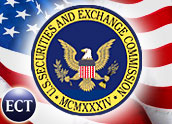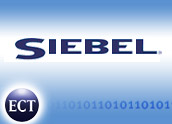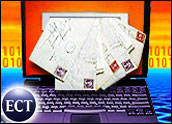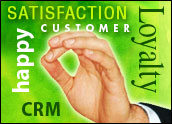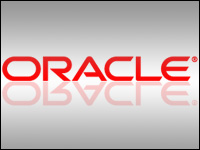
A drive to improve citizen services is part of a long-term push by the U.S.government to be more responsive to taxpayer needs and to diminish itsunresponsive, bureaucratic image. This push began during the Clintonadministration and has continued through President Bush’s tenure.
Now, the U.S. Census Bureau has revealed it has turned to a hosted-CRMsolution from RightNow Technologies to increase its responsiveness.
Seven months ago, RightNow began working with the CensusBureau to improve handling of citizen inquiries. According to RightNow, thebureau primarily selected its CRM offering because it could be deployedquickly. The RightNow hosted-delivery system went live at the agencyjust two weeks after completion of an initial pilot.
Same as an Enterprise
David Hybels, a program manager at Allen Bonde Group, a CRM andself-service management consultancy, explained to CRM Buyer that governmentorganizations like the Census Bureau are not much different from large businessesthat receive a high number of phone and e-mail inquiries and that can achievesignificant cost savings by allowing technology to handle theircommunications with customers. In the case of governmentagencies, change “customers” to “citizens” and you havea similar equation.
The Census Bureau uses most of the core functionality of RightNow’s multichannelcontact center solution — voice integration, Web self-service and voice self-service– to manage incoming phone calls, e-mails and its Web site, according to Steve Nesenblatt, director of the public-sector group at RightNow.
At this point, the Bureau is not releasing any statistics on call volumes or the numberof accesses to its RightNow knowledge base. But Nesenblatt said in an interview with CRMBuyer that another government site using a RightNow system serves up 1.5 million answers per month from its knowledge base.
Overall, he added, there is a general initiative within the federal governmentto become more responsive. However, as yet, there simply is not sufficientfunding.
Speedy Responses
Visitors began using the census.gov site’s online knowledge base as soon asit became available. This reduced the Bureau’s volume of phone calls ande-mails. The hosted system also allowed the agency to filter out thesimplest and most repetitive questions, freeing up its staff tospend more time responding to questions requiringindividualized replies.
Bureau staff members also could help customers who called in by directing them to aspecific knowledge-base document during the call. This ensured that customerscompleted their transactions without leaving the site — and also taught themto use the online knowledge base for their next visit.
Nesenblatt acknowledged that the government’s use of CRM is different from thatof an enterprise. “Mostly, they want to serve a caller, then go away,” he said.”There is little desire for developing loyalty, cross-selling or upselling.”
One thing government sites using RightNow technology do get, he noted,is a sense of the “question of the day” — a sort of snapshot ofcitizen opinion and concern.
Businesslike Behavior
However, perhaps because it more closely mirrors the commercial worldthan many government institutions, the Census Bureau seems to be taking amore enterprise-like stance. After all, the agency does possess mission-criticalinformation for businesses, including demographics and market segmentation.
Businesses large and small depend on this data to better understand thecomplexities of their markets and, in some cases, to survive. The CensusBureau, perhaps unsurprisingly, sells some of its data.
“It’s not a profit center,” explained Nesenblatt, “but it makes every effortto recover its costs.”
In CRM We Trust?
While acknowledging that privacy is an issue, Paul Greenberg, president of The56 Group and author of “CRM at the Speed of Light,” said he feels hopeful aboutthe increased use of CRM by government agencies. “If the government is moreresponsive, that encourages citizens to believe in it, and that helps erasethe cynicism dominating our view of government since Watergate,” he said.
Greenberg told CRM Buyer that state, local and federal governments currentlyview CRM as “citizen relationship management” — too narrow a view of what itdoes. Instead, he believes agencies should treat CRM more broadly, as”constituent relationship management,” to help restore consumer trustby emphasizing the responsiveness of government institutions tothe citizenry.
Allen Bonde Group’s Hybels concurred, saying that as government agenciescontinue to adopt customer-service automation technology, citizens willbecome more satisfied with their experience — and that, in turn, willsave taxpayers money. Twenty years ago, we could only imagineefficient government bureaucracies. This is no longer adream, but a reality, he said.





